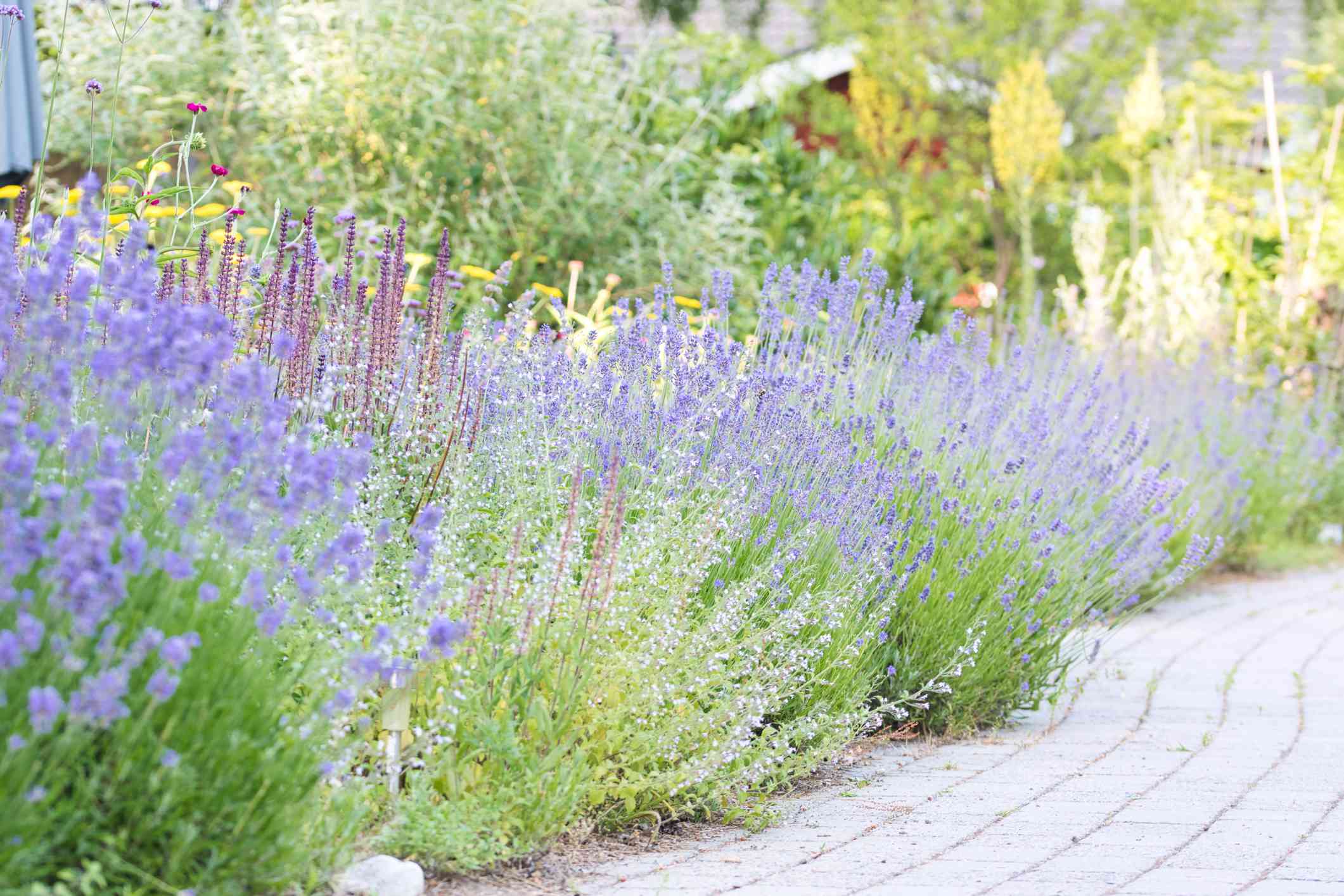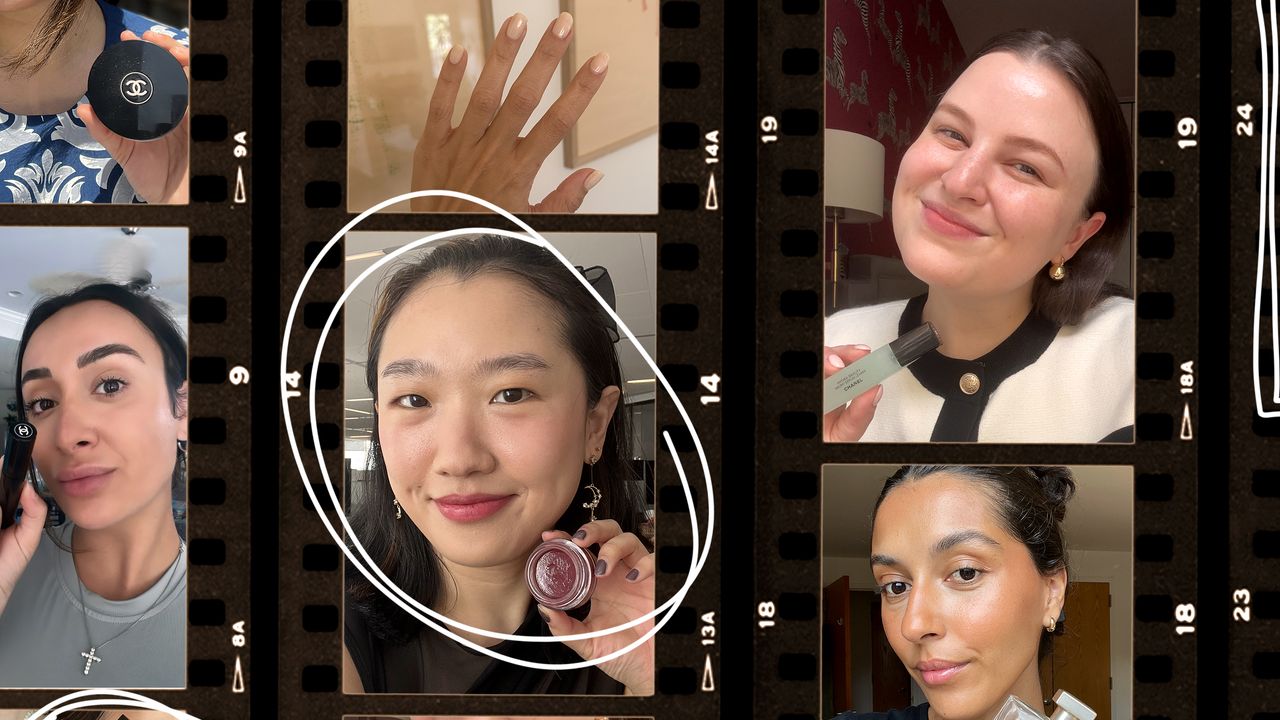Key Takeaways
- Lavender plants attract pollinators but repel some other insects including mosquitoes.
- The insect repellency of lavender plants, essential oils, and lavender-scented products are not the same.
- The efficacy of lavender as a pest repellent depends on the number of plants.
While gardeners have long appreciated the beauty of different lavender cultivars and collected the blooms to dry for sweet-scented sachets, entomologists are just discovering that lavender can act as a natural insect repellent. Learn more about the benefits of growing lavender to repel bugs.
Does Lavender Repel Bugs?
Entomologists at Texas A&M University and the University of Georgia Cooperative Extension have found that mosquitoes, fleas, and flies find the scent unpleasant. And while lavender in the garden is ideal to attract pollinators, it does not work well to repel insects that damage plants like aphids or slugs.
Of course, the effectiveness of lavender in protecting an area from aggravating pests—like mosquitoes, fleas, and flies—depends on the number of plants.
Want more gardening tips? Sign up for our free gardening newsletter for our best growing tips, troubleshooting hacks, and more!
Do Lavender Plants and Essential Oil Work the Same?
The compounds in fresh and dried lavender flowers that repel insects and in lavender essential oil are not the same; a study has shown that a 20% solution of lavender essential oil in water or an unscented lotion can repel mosquitoes for up to 8 hours.
Should You Use Lavender as an Insect Repellent?
Whether you are mixing a DIY solution of lavender essential oil and water as an insect repellent or purchasing a plant-based repellent from the store, be sure to read labels and apply it frequently. It’s important to remember that a lavender-scented product may not contain the amount of essential oil required to keep insects away.
Lavender as a Pollinator Attractant
Lavender shines in the garden to attract pollinators such as bees, wasps, and butterflies. Because it blooms for a long period during the summer, the insects rely on it as a source of food. While several insect pollinators are attracted to the scent and high levels of nectar in the lavender flowers, bees seem to enjoy the blooms more than others.
Bees are naturally drawn to the violet-blue range of colors and bumblebees use their long tongues, to easily reach the nectar within the tubular flowers. Thanks to lavender’s abundance of nectar and pollen, bees rely on it as a summer food source.
How to Grow and Care for Lavender
Native to Mediterranean areas, English lavender (Lavandula angustifolia) requires well-draining soil, preferably on the dry side, and full sun. It will not tolerate wet feet in heavy clay soils and prefers sand or loam that is neutral to alkaline.
The evergreen, perennial grows up to 2 feet tall and 3 feet wide. It produces many aromatic blue, white, purple, or lavender blooms in the summer and has aromatic leaves and dry seed heads. Remove the spent flower spikes after the flowers fade to keep lavender blooming throughout the summer. Lavender should be cut back yearly in late summer or early fall to keep the plant full.
The flowers can be dried and used in potpourri. Harvest the flowers as the buds first begin to open and when the stem still bends easily. Form small bunches of the stems and hang them upside-down in a warm spot with good air circulation until they are dry. Many gardeners plant lavender as a border or low hedge, in mass plantings, or grow it in containers.
5 Other Plants That Repel Bugs
- Citronella Grass (Cymbopogon nardus): Grow this tropical perennial in a container with full sun exposure near your favorite outdoor seating area to repel mosquitoes and flies.
- hybrids)PetuniaPetunias (: While we love the colorful blooms from these annuals, flies hate the scent. Keep deadheading these sun-loving plants so they are always in bloom.
- )Tagetes spp.Marigolds (: These sun-loving, heat-tolerant, vibrant blooms repel flies and other insects thanks to their pungent odors.
- )Ocimum basilicumBasil (: Thanks to its strong aroma, this annual herb keeps flies and mosquitos away. It also repels aphids, mites, and tomato hornworms in the garden.
- Catnip (Nepeta cataria): While you may have cats invade your garden, catnip contains a compound called nepetalactone that repels flies, mosquitoes, and deer ticks.










